- Home
- Acoustic Materials
- Project
- Information
- Service
- About Master Acoustic
- Contact Us
-
Name: Vibration isolation pad
Base material: polyethylene rubber foam
Length (roll): 10 m
Width: 1 m
Thickness: 10 mm
Color: black, white
Three-layer composite (black + gray + black)
INQUIRY
Vibration isolation pads, also known as anti-vibration pads or vibration-dampening pads, are materials or devices used to reduce or isolate vibrations in various mechanical and industrial applications. Vibration isolation pads are designed to absorb and dissipate vibrational energy, preventing it from transmitting to other equipment, structures, or the surrounding environment.
Material: Vibration isolation pads are typically made from various materials, including polyethylene rubber foam. The choice of material depends on the specific application and the level of vibration attenuation required.
Thickness and Density: The thickness and density of the pads can vary to suit different vibration frequencies and amplitudes. Thicker and denser pads are often used for heavier machinery and equipment.
Installation: Vibration isolation pads are easy to install and can be placed directly under machinery, equipment, or structural components that generate vibrations. Some pads come with adhesive backing or interlocking designs for secure placement.
Noise Reduction: In addition to vibration isolation, these pads can also help reduce noise generated by vibrating equipment, making them useful in noise-sensitive environments.
There are various types of vibration isolation pads, including simple square or rectangular pads, cylindrical mounts, and more complex isolation systems with multiple layers or chambers for enhanced vibration control. They can be used in:
Machinery: They are used under machinery such as generators, compressors, gym equipment, and manufacturing equipment to reduce vibrations and prevent damage to nearby structures.
Construction: In construction, these pads can be used to isolate building foundations or support structures from ground vibrations caused by nearby construction activities.
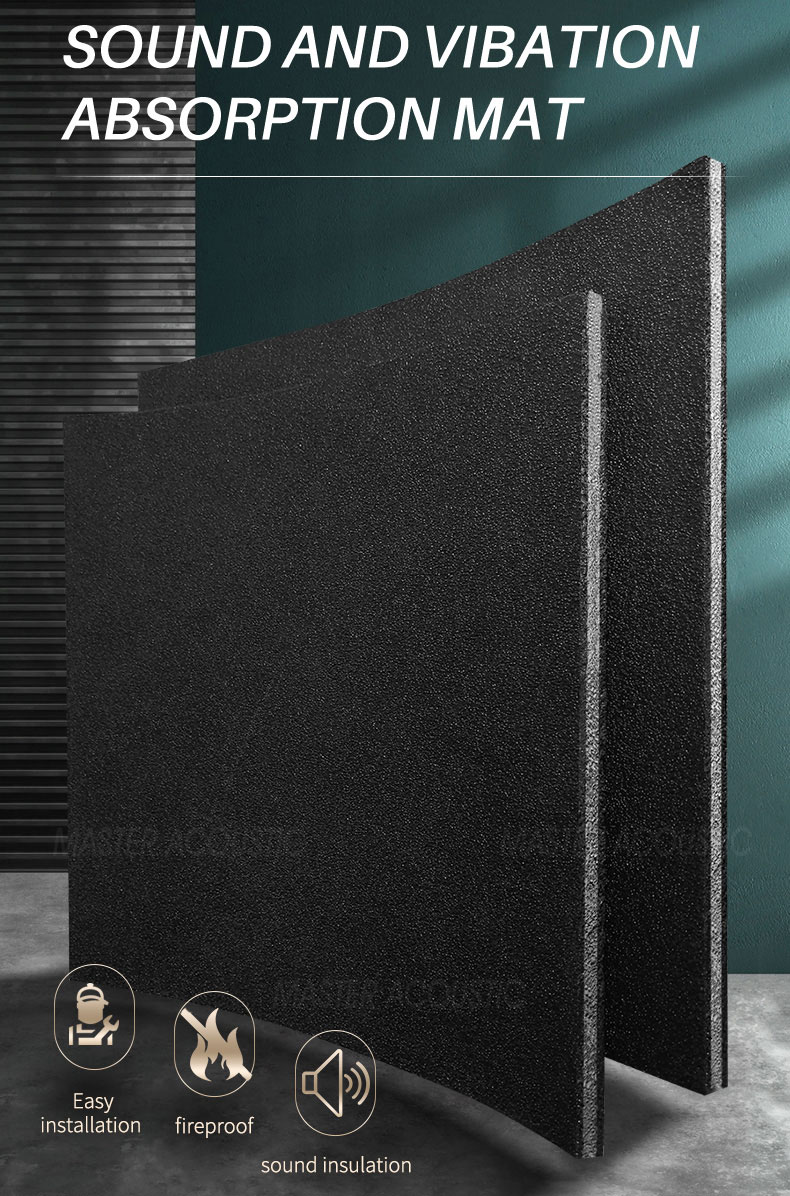
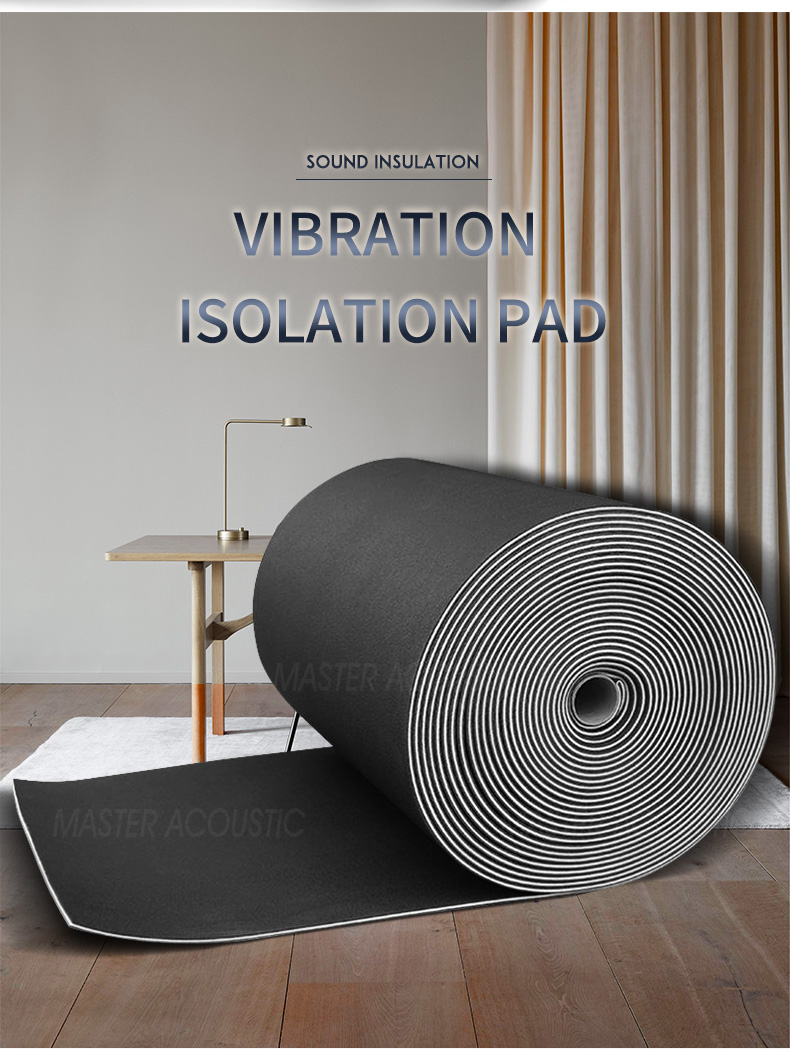
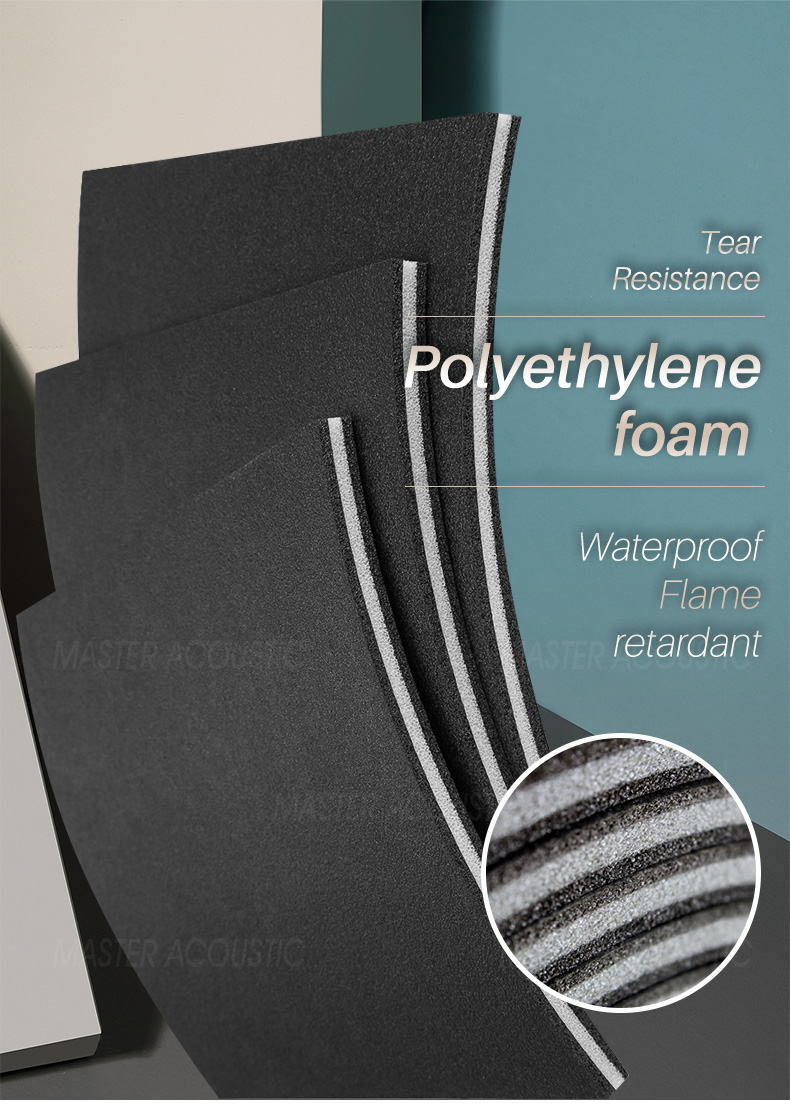
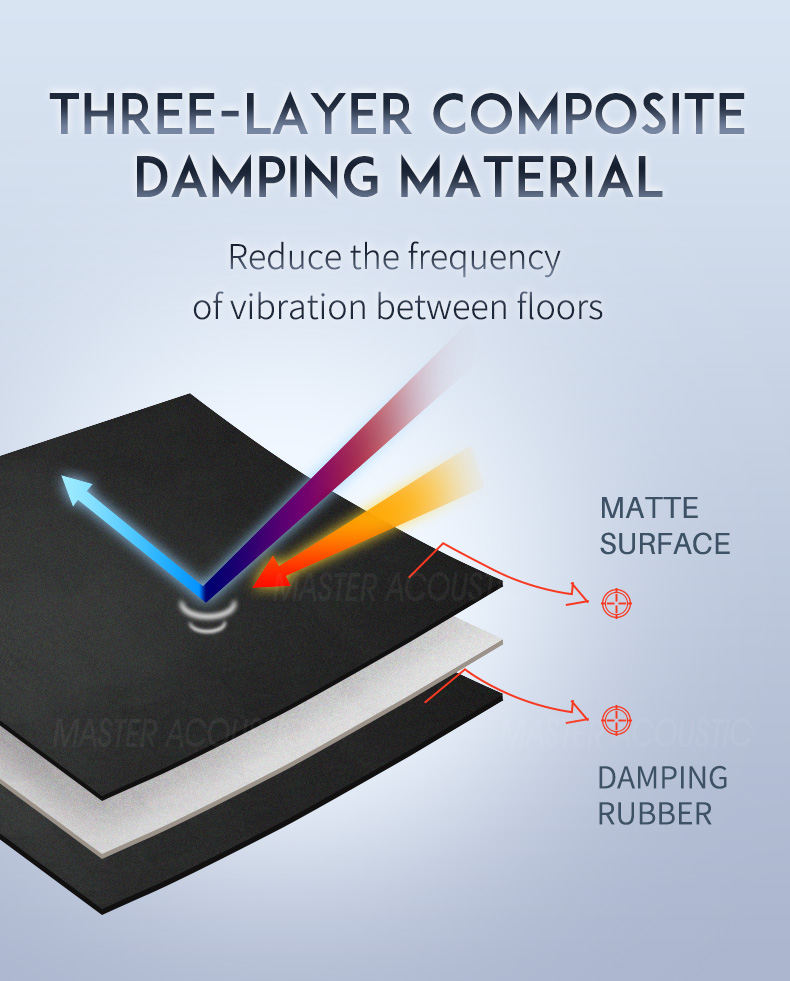
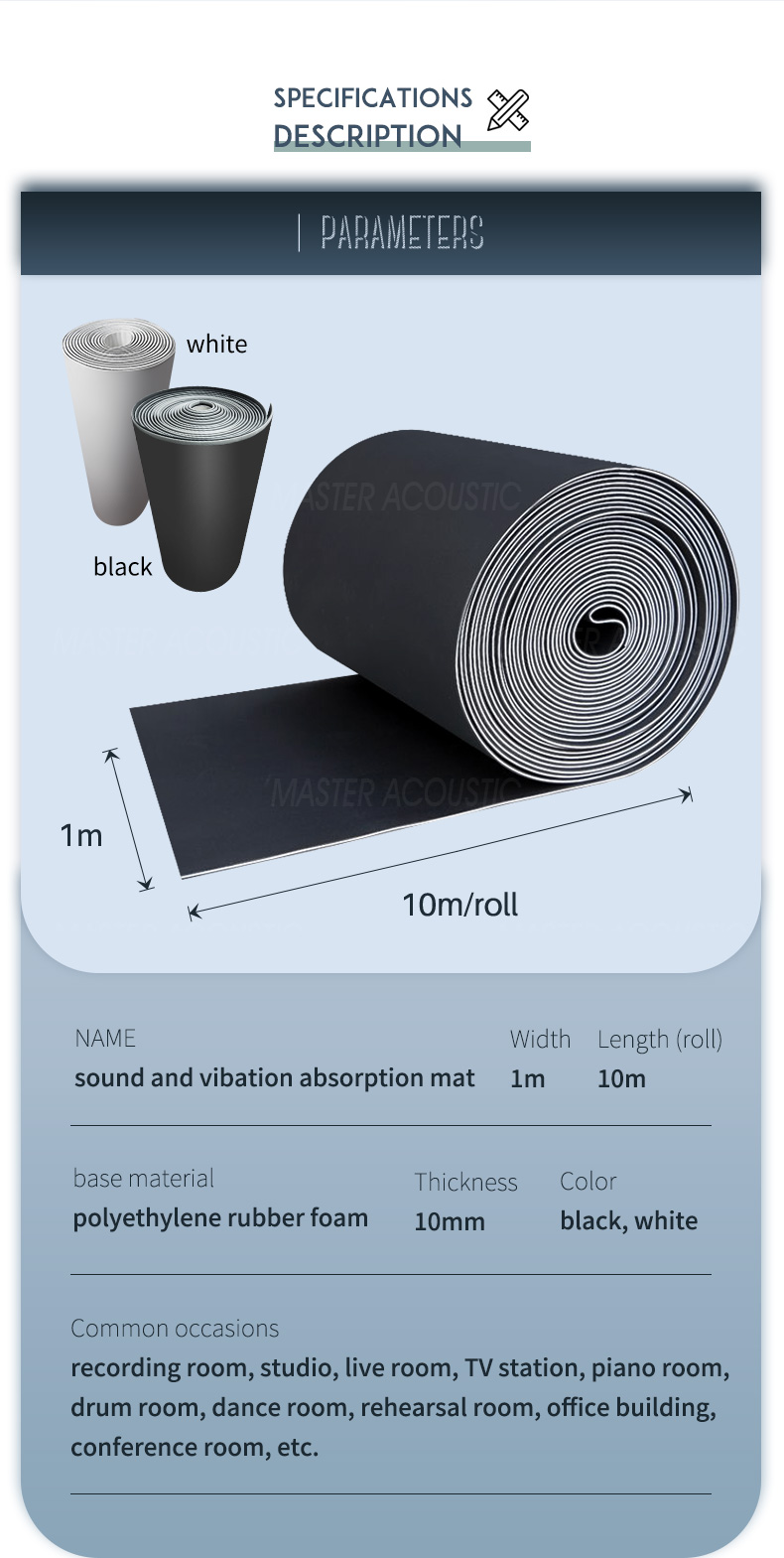
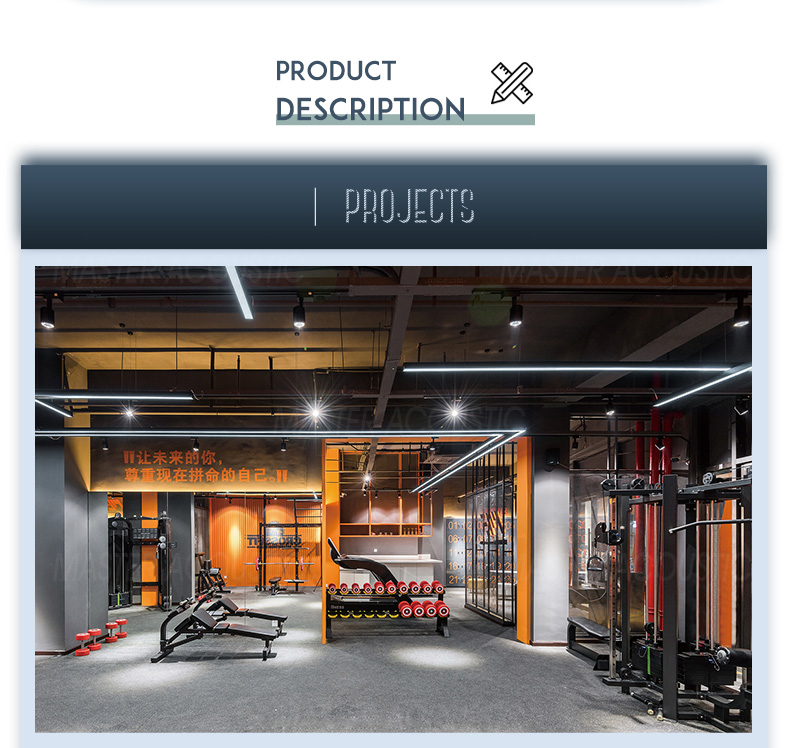
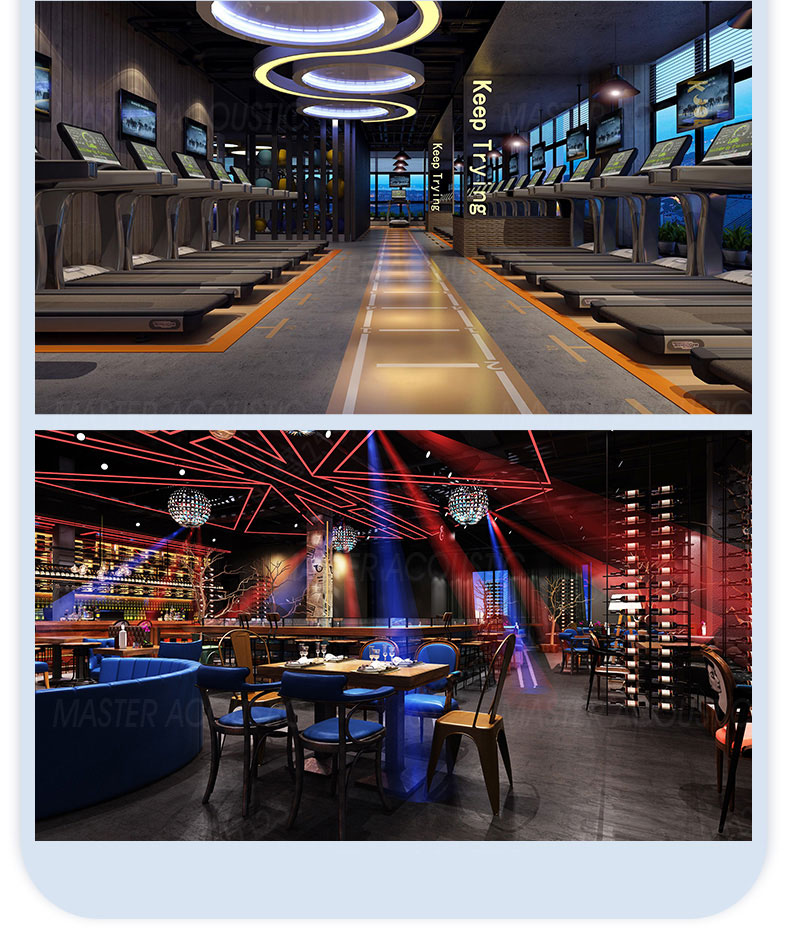
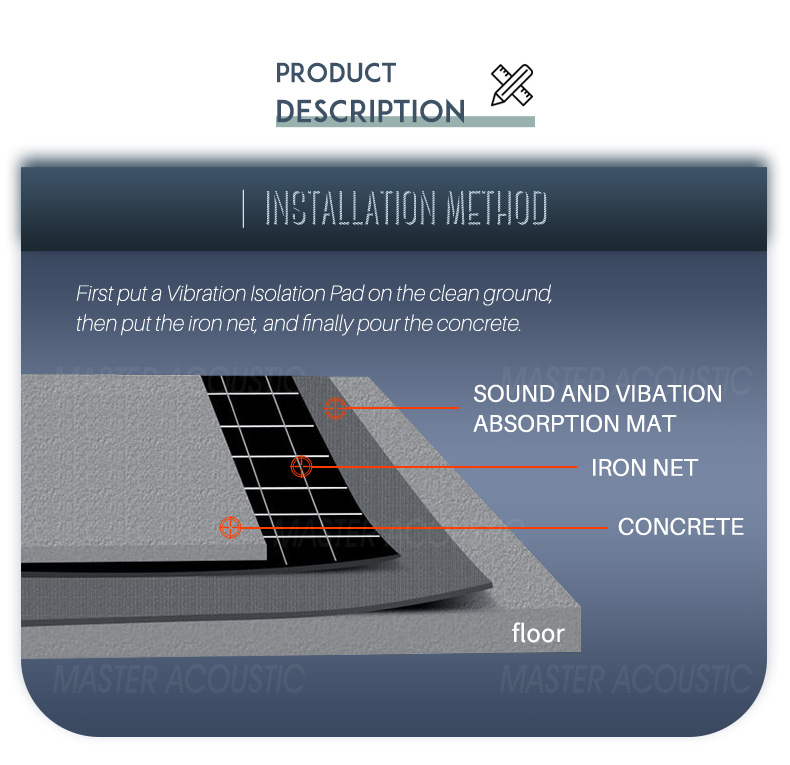
Product parameters
Name: Ceiling space absorber
Finishes: fiberglass cloth, acoustic cloth
Structure: Acoustic cloth→Aluminum alloy frame→Glass fiber cotton board
Style: full-covered cloth, half-covered cloth, external frame
Color: hundreds of colors
Width: 600mm, 1200mm
Length: 1200mm, 2400mm
Thickness: 50mm, 100mm
Size: Allowable tolerance, width±2mm, length±2mm, height±0.5mm
A. Acoustic performance
The panel space sound absorber is a suspended sound-absorbing structure. It is not a sound-absorbing structure combined with rigid walls such as walls, but a self-made sound-absorbing system, used in large spaces to reduce indoor noise or improve indoor sound quality conditions, and is suitable for hanging on ceilings to increase space utilization.
B. The number of suspensions
The number of suspended sound absorbers in the space should be calculated and determined according to the sound absorption characteristics of the sound absorbers and the increased sound absorption required to reduce indoor noise (or control the reverberation time). When the plate-shaped space sound absorber is used in the design, if the total area of the sound absorber is equivalent to 30-40% of the roof area of the building, the sound absorption efficiency of the plate-shaped space sound absorber can reach the best value.
C. Application space
Applicable places: gymnasiums, basketball courts, school auditoriums, meeting rooms, lecture halls, museums, indoor entertainment venues, and other spaces that need noise reduction.
D. Installation method
Space sound absorbers are mostly hung on the top of the building space, and most of them are hung off the top. The plate-shaped space sound absorber can be suspended horizontally or vertically, and can also be suspended horizontally and vertically. In the case of the same total area, the noise reduction effect is basically the same.
1. Are you a trading company or a factory?
Our company was established in Guangzhou city, with the factory in Foshan. We are a manufacturer engaged in acoustic products for more than 10 years. Welcome to visit our factory.
2. How can you guarantee the quality?
We are strict on every step of production to ensure the best quality. We provide a full-scale quality management system and pass the ISO9001 quality assurance system.
3. Can you offer a sample?
Yes, we can offer standard samples for free, and customization is available.
4. Do you accept customization?
Yes, we can support our clients with OEM, so that it can be easier to open the local market and build a long-term partnership between us.
5. How long is the lead time?
Normally 10-25 days upon receiving the deposit, based on the quantity of 1,500 SQM
6. Can you assist with installation?
Yes, we can arrange to assist in installation if needed.
7. Do you have a CE certificate?
Yes, we have. We have shipped many goods to European countries.
8. What are the factors influencing the NRC?
Perforation rate, the gap between the wall and panel, the density and thickness of the glass wool, etc. All these factors will affect NRC.
9. How about the capacity of your factory?
We can produce 500,000 sqm of acoustic materials per year.
10. How to pay?
You can pay by Western Union or T/T. Cash will be ok if we do business face to face.
More questions or details about our products or company, please feel free to contact us.